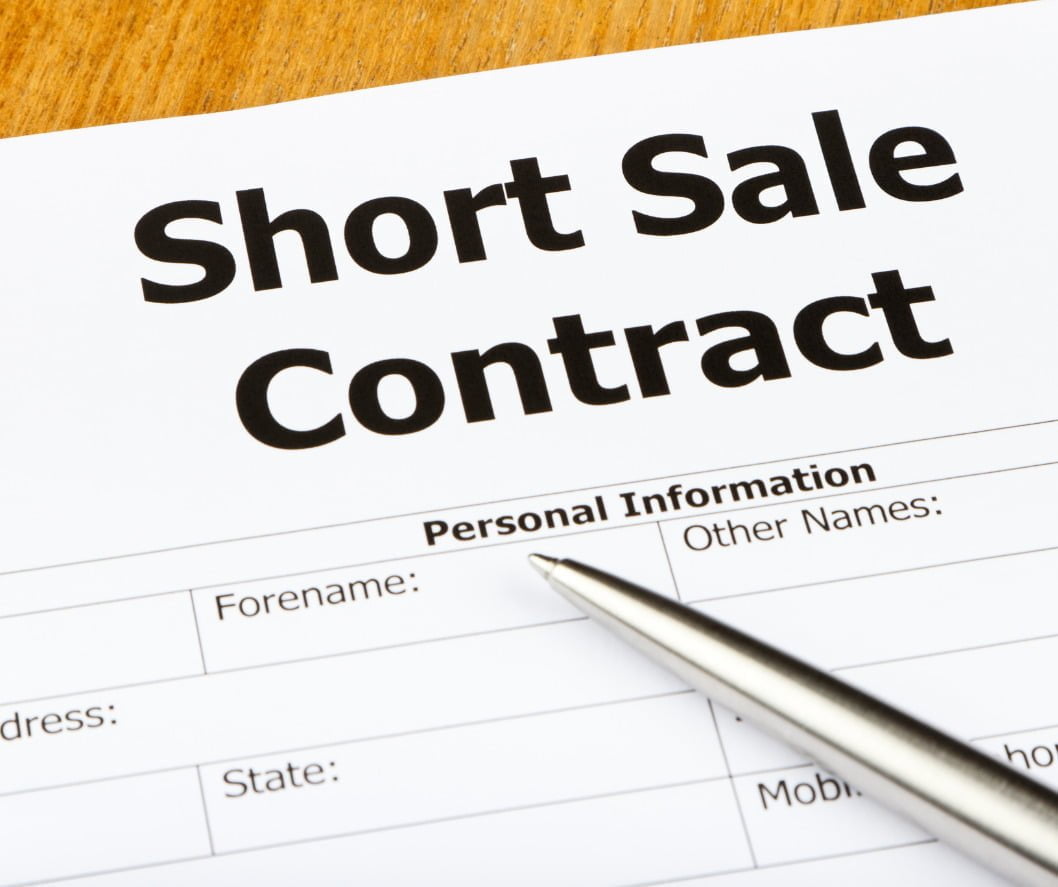Are you familiar with someone who claims they were “underwater” on their mortgage payments, meaning that their total owed exceeds its estimated worth? This could indicate they owe more on their loan than its value is currently.
Short sales offer an effective solution for homeowners struggling to meet mortgage payments.
In this post, we’ll go through what a short sale means in terms of definition, function and potential advantages and disadvantages to buyers and sellers alike. Short-term sales offer advantages to both parties involved.
What exactly constitutes a short sale in Real Estate?
Short sale real estate sales occur when homeowners cannot meet the mortgage payment cost and need to sell their house quickly for whatever reason. Proceeds of such sales go straight back into settling any outstanding loans which remain after payment has been completed if an indeficiency judgement against the homeowner occurs.
Short sales offer an alternative to foreclosure that may adversely impact both borrower credit and the lender. Regardless if you have your home listed on the local, regional or national MLS, the bank may not wait
As homes tend to suffer under financial strain from their owners, real estate offered as a short sale is typically sold at an artificially increased price – meaning both new buyers and investors benefit by purchasing it at less than its full market price.
How Can A Short Sale Occur?
Short sales occur because homeowners cannot meet their mortgage payment due to factors like job loss, sudden medical costs or a decrease in salary.
Further, for short sales to take place, homeowners must owe more on their mortgage than its worth; an example might be wherein one owes $225,000, but their home’s worth only $200k – in this instance, the lender could permit short sales.
How Does Short-Sale Process Work?
1. Submit for Approval for First Approval (Your First Subsidized Loan Approval )
An initial approval by your mortgage lender is an integral step toward home purchasing success as it establishes how much of a loan amount you qualify to borrow for purchasing a property. Without initial approval, buyers could end up looking at properties outside their budget. At the same time, sellers may hesitate to accept offers that do not receive approval due to a lack of financial backing from sellers and buyers alike. Delays between offers being accepted and approval being received could cost sellers and buyers time and energy waiting – preapproval before accepting an offer can give your standing as a seller a much stronger edge!
2. Locate A Real Estate Agent
Partnering with a real estate professional to find your ideal short-sale property can be advantageous. They have access to multiple listing services (MLS), making short-sale properties much easier to identify; in addition, their expertise concerning local market conditions will enable you to locate properties at reduced costs.
3. Make An Offer
Once you find a home for a short sale that meets all your criteria, submit an offer quickly – but try not to submit one too low. Although short sales usually incur lower costs overall, lenders still hope to recoup as much money from it as they possibly can, and this means sellers might accept any offer made from competitors; market price, location and broad economic trends all play into determining an acceptable offer price.
4. Do You Require Home Inspection Services?
Short-sale properties typically sell as-is with no chance for negotiations, thus limiting buyers’ ability to bargain effectively. As part of an inspection plan, however, buyers can become aware of any necessary repairs or remodels and whether or not they might be better off leaving than staying behind a house with issues that can’t be solved easily. A home inspection could indicate it might be best for all concerned if repairs become apparent during the inspection; otherwise, they might just opt to give up. In either event, it could prove hard to negotiate down the price without additional offers. Although major issues might require searching more aggressively for deals elsewhere if detected during home inspection results reveal themselves during negotiations, a home inspection results in issues being revealed such as significant destruction; you could negotiate further discounts if damage arises during negotiations if an inspection uncovered issues arise during negotiations.
5. Wait For Lender Approval
Preapproval may help expedite the home-buying process, yet waiting for approval from both lenders can take an inordinately long time – often far longer than waiting for approval for either process!
6. Close on Your New Residence
Once approved by the lender of the seller, it’s finally time for you to move into your new place! Just sit tight until the closing takes place!
Be mindful that this process requires the seller to file an unjustified hardship notice that shows they cannot afford their mortgage payment. It includes evidence substantiating this statement and lien holders showing how many individuals financially invested in the house. Their lender will conduct a comparative market analysis study to ascertain if the sale price is acceptable.
Considerations When Short Selling Homes (Reverse Mortgage)
There are advantages and disadvantages of purchasing and selling short sale houses:
Short Sale Pros
There can be numerous advantages associated with short sales for both parties involved, such as increased liquidity.
Buyers: Due to sellers and lenders being eager to complete short sales transactions, home buyers often benefit from lower home sale prices during short sales transactions. Furthermore, the unpredictable elements involved – including various properties for sale at various times and times – discourage buyers and reduce competitiveness among them.
Sellers: Short sale offers homeowners an opportunity to avoid foreclosure while purchasing another home, with those making all mortgage payments over the previous 12 months eligible to obtain FHA financing for any possible new purchase.
Short sales provide many advantages to sellers; first, they allow them to stay in their property until it sells, and their lender pays all closing expenses and commissions instead of their buyer; plus, any profits earned can help alleviate debt while receiving repayment from lenders upon closing.
Short Sale Compromises
Unfortunately, sellers and buyers face specific difficulties when undertaking short sales transactions.
Buyers: Short sales typically require more time as buyer’s lenders and lien holders must confer each time an offer comes up for negotiation. Discussions regarding such an undertaking could drag on indefinitely should lenders need to determine if a certain buyer can generate enough profit to warrant selling or should there be difficulty in filing necessary hardship notices and financial documents on time by buyers themselves.
One challenge facing those searching for short sales properties involves negotiation skills and difficulties in establishing their value, making buying short sales riskier due to potential lienholder delays or cancellations. Therefore, buyers typically conduct extensive investigations when investigating properties before investing.
Furthermore, if a buyer cannot cover their mortgage payment on time and damage occurs to the home that requires repair, its value could decrease and become more of a liability than an asset.
Sellers: Short sales have the potential to adversely impact sellers, in terms of credit ratings as well as income potential – lenders take all profits collected, which means no income generated for sellers in terms of profit sharing from short sale profits; furthermore, lenders set the prices not the sellers themselves.
Furthermore, lenders could pursue the seller to recover any differences between selling costs and mortgage balance that result in an unplanned sale – this can wreak havoc with credit scores as it requires waiting between 2-7 years to apply for FHA loans if one cannot be obtained initially.
What Are Short Sale Properties & Who Are Their Buyers?

Frequently Asked Questions on Short Sales of Homes (FAQs).
As more sellers and buyers consider short-sale properties for sale, common questions often arise about what steps are involved with short-selling their house or buying from others who do so.
What are my alternatives to short sales?
Alternatives to short sales include:
- Loan modifications involve altering an arrangement to pay back loans
- refinancing existing mortgages
- leasing out part of your house as security against foreclosure
- refinancing them altogether.
What are the differences between short sales and foreclosure?
Short sales occur when buyers maintain ownership and continue living in their property while working with their lender to market it at a reduced cost. Conversely, foreclosure happens when lenders take possession of it when homeowners fail to make mortgage payments within 90 days, selling and expelling the homeowner from the said house – both scenarios potentially have devastating impacts on the credit ratings of its residents.
Should I buy a home sold as a short sale?
Doing your research on short-sale homes could be the right move if done properly and approved by lenders for purchase, which will bring significant repairs or remodeling. However, they might take longer than traditional home sales and could present buyers with houses needing repair.
How long does an initial short sale last?
Short sales often create lengthy transactions between buyers and sellers. Therefore, it’s crucial that both parties offer an initial price immediately for any property being considered, even if it takes some time before completion occurs.
Final Thoughts On Short Sales
Short sales offer relief to sellers experiencing financial strain while giving buyers opportunities. Unfortunately, short sales can often prove more challenging to organize than traditional house sales due to necessary repairs and lienholder opinions being sought, further complicating negotiations and financial considerations during negotiations.
Thus, anyone considering a short sale must consult their lenders regarding its possible negative credit implications. At the same time, buyers are recommended to conduct thorough research and collaborate with an agent when searching for properties to buy to ensure they will make for an ideal acquisition.
